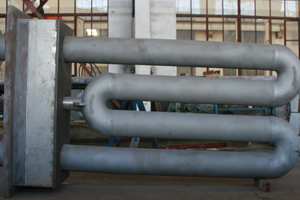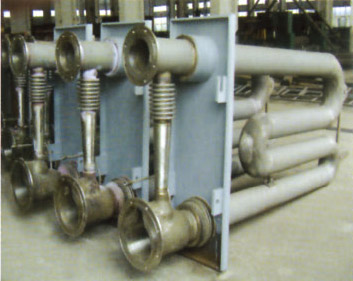Radiant Tube


Radiant Tubes transfer heat from combustion gases to the radiant tube and then radiate the energy to the load, and are used in specific heating processes where combustion products cannot come in contact with the load or material. Radiant tube burners are an indirect heating burner meaning the heat is transferred without any direct flame or combustion exhaust. Radiant tube burner systems are designed to reduce nitrous oxide in the burner process. Radiant tube burners include a flue gas recirculating assembly designed to reduce NOx emissions. Typical applications include batch annealing, continuous annealing, continuous galvanizing, continuous strip, heat treating, liquid bath, roller hearth and soaking.
There are lots of advantages for using radiant tube heating:
· Radiant heaters are generally more efficient than forced air. The Infrared Heater Safety Council says the averag fuel savings is about 30%, although some manufacturers claim even larger savings.
· Compared to forced air, a given building will require a radiant heater that is rated for 15-20% lower BTU output.
· Because radiant heating warms you directly instead of warming the air first, you can set the thermostat several degrees lower than you do with forced air and still feel warm.
· With forced air, the warmest air always ends up at the ceiling. It can be very warm at the ceiling and still be cool at floor level. Because radiant heat is directed towards the floor, it warms the floor itself and the objects in the garage first. Radiant heating provides a more consistent temperature, without all the heat ending up at the ceiling.
· With a radiant heater, there is less heat loss through ventilation and through cracks around doors and windows.
Radiant tube heaters are especially attractive as a garage heating method, for several reasons:
· There is no open flame with an infrared tube heater, so it is safer for an environment with flammable vapors or lots of dust.
· Combustion air can be drawn in from outside, further increasing the safety factor in an environment with flammable fumes.
· An infrared tube heater doesn’t have an external blower or fan to blow dust around.
· When you open a garage door, you don’t lose all your warmth. Since the objects in the garage are warm (and not just the air), the garage will feel warm again very quickly once the door is closed.
· If you have a concrete floor, the concrete absorbs energy from the infrared tube heater and acts as a heat sink. Once the floor is warm, it will radiate heat for a long time, keeping you nice and toasty!
